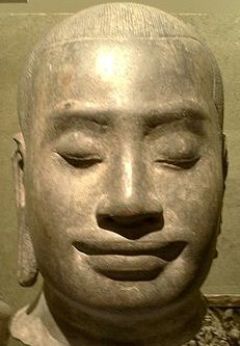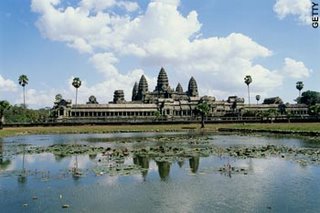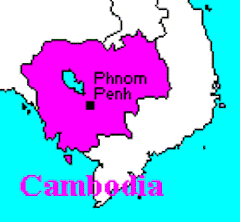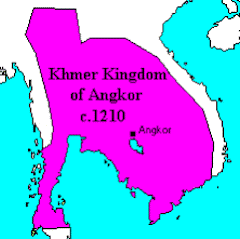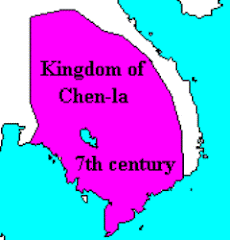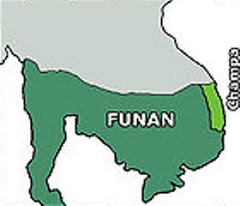Monday, January 30, 2012
WELCOME TO MY BLOG
Monday, January 23, 2012
Hearts and Minds
By Dene Mullen
The Southeast Asia Globe Magazine
“We have to understand the mindset of the human being,” he bellows. “If you force somebody, the love will last a short time. If you capture their mind, the love will last forever.”
If broadcast in grainy black and white, it would be easy to recast the Sam Rainsy Party’s 25-year-old youth movement leader as a political heavyweight of yesteryear, addressing a rally of thousands who soon rise en masse to roar their approval. As it stands, Soung Sophorn is speaking at a workshop in a conference room at Phnom Penh’s Sunway Hotel.
Nevertheless, his passion is admirable and, with Cambodia’s commune council elections due to take place in June 2012 and the National Assembly elections following in 2013, the timing of a workshop promoting democracy and youth participation in elections could hardly be better.
Two million of the country’s young citizens will reach voting age in 2012 and, according to the organiser of the workshop, Konrad Adenauer Stiftung (KAS), a political foundation offering civic education, the government “lacks the equipment to issue [new ID cards] in time”.
According to a 2010 study for the United Nations Development Programme (UNDP) conducted by the BBC World Service Trust (WST), a large proportion of young Cambodians are already not exercising their right to vote: “Of those who were aged from 21 up in the 2007 commune elections, 53% did not go to vote,” it states.
As well as the potential shortfall in new ID cards, there are other documentation concerns helping contribute to a lack of youth participation in elections. According to the KAS: “Voter registration responsibility lies with the commune councils, name lists are drafted manually and very often include spelling mistakes or redundancy of names.”
Many young people also face (what they see as) more pressing issues, such as academic achievement, holding down jobs, or, with 43% of the Cambodian population below the poverty line, simply surviving.
“We observed that most students with university-level education still don’t pay much attention to elections, stating that they only have their names registered because of their parents’ encouragement and that they only follow other people,” said Ke Dararoth, a director of the Khmer Youth Association (KYA).
As well as practical obstacles to political engagement, this laissez faire attitude often combines with a lack of understanding of institutions and democratic concepts.
The UNDP-WST study, titled Youth Civic Participation in Cambodia, highlights such problems. “Participation levels are low (8%) when measured in terms of youth voicing their opinions to public officials, either to government officials or NGO staff,” it states.
In addition, the report found that just three-quarters of the young people interviewed had heard of ‘Parliament’ and that two-thirds of these people did not know what parliament does. In addition, only 28% knew the meaning of the word ‘Democracy’, while just 6% read a newspaper or magazine compared to 77% who watch television.
“Our research would suggest that people have limited understandings of what some of the key institutions actually do and what opportunities those institutions offer them as young citizens,” confirmed Colin Spurway, project director of the BBC WST.
“Also, the family, senior people, don’t allow their children to become involved in politics; they tell them to be careful and that it is dangerous,” added Soksan Hing, a sentiment that was echoed by the reaction of a number of young people on the streets of Phnom Penh.
“I don’t want to be involved. I don’t trust politics in Cambodia. They make laws but they don’t follow the principles of the law,” said a 25-year-old university student who asked to be identified only as ‘Reaksmey’ due to fear of reprisals.
“I don’t want to be involved in politics at all. I’m really afraid that it will cause a lot of problems for me,” said Vanny Men, 20, a female student at the National University of Management.
In addition to this indoctrinated fear, Spurway pointed out a general belief that young people aren’t ready. “There is often an impression that in principle young people should be involved,” he said. “People will generally say youth are the future, they are the pillars of our society and those sorts of things, but when the moment comes when a young person says: ‘This is my opportunity to participate – can I?’ they tell us older peoples’ responses will usually be: ‘Not yet.’”
Yos Phanita, 40, a member of the central youth working group of Cambodia’s ruling Cambodian People’s Party (CPP) told the Southeast Asia Globe: “We believe [young people] are very important in carrying on the responsibilities from the older generation to the next generation… We try to engage them in social activities like traffic-awareness programmes and social work – helping the environment and keeping the city clean.”
He was also quite open when it was put to him that it is difficult for a member of the CPP to have their voice heard until they are at least 40 years of age.
“I think it is more or less reflective of reality, but it does have its explanation in a cultural basis rather than a political basis,” said Yos Phanita. “The cultural basis is that Southeast Asia has a philosophy that you have to respect your elders. They are generally wiser, more experienced, they have been through their life and are more prudent in dealing with issues.
“I always believe that passing on responsibility is the same analogy as taking over ownership of a company. If your father built the company, his concern will be whether his son will be able to take over. He has no problem giving it to his son… but it is up to the son to make sure he has his father’s confidence to take on that responsibility.”
Ke Dararoth sees this attitude as a barrier to the development of young people as future political leaders, stating that opportunities for young people to run for public office and other activities related to democracy are “still limited”.
“When young people get involved in politics, they often remain passive supporters rather than active decision-makers, even though close to 70% of the Cambodian population is between 14 and 30 years old,” he added.
Yet Yos Phanita insists that the CPP sees young people as the future of the party, once they have become “well connected to their ancestors or their predecessors”.
“The past were involved in a physical struggle, but the future will require more intelligence to keep up with globalisation… So being able to combine physical strength, physical adaptability and intelligent adaptability is our great hope for the next leader of the youth in the CPP,” he said.
Ke Dararoth, however, wonders how such a process can be expected to begin given the current prohibition on political discussions and meetings in schools: “The government does not allow them, because schools are seen as a neutral area where politics has no place.”
Despite the generally bleak outlook, attempts are being made to reconcile young people with a political system of which many are either openly scared or blissfully unaware.
The KAS notes that the government has adopted a national youth policy “to increase youth capacity and the development of youth”, while the KYA has been running several specific youth engagement projects, as well as organising a general assembly every three years to elect its own president “to ensure that young people fully understand and can practice their participation in elections”.
Meanwhile, the HRP has dedicated youth wings and runs free educational training centres throughout the country. According to Soksan Hing, the HRP also works with organisations such as the International Republican Institute, the UNDP, [Konrad Adenauer Stiftung], and the Friedrich Naumann Foundation. As a result, the party has sent young Cambodians to programmes both domestically and overseas, where they can study political systems, join multiparty debates, receive ‘future leader training’ and join the UNDP’s young political [adviser] council.
Many organisations and some political parties have also started sending SMS text messages to young people, reminding them to register to vote, let them know how to go about doing so and, ultimately, to go out to vote when the time comes.
Colin Spurway also feels the fear many refer to when discussing young people and politics is mainly based around party politics, as opposed to civic participation.
“When people are pushed and asked: ‘When you refer to politics being dangerous, do you mean decisions like should this village repair the road or build a new school?’ people will say: ‘Oh no, that’s not the politics I mean.’”
As such, and in accordance with its findings from the joint study with the UNDP, on Sunday January 15, the BBC WST will begin broadcasting a new multiplatform media show called Loy9. It will start with a 45-minute TV programme at 8pm on CTN. The opening 13 minutes will be a drama focusing on a young woman and her friends in a village finding different ways to express their voice. This is directly followed by a magazine show and then, the following day, a radio phone-in show at midday. There will also be a website, Facebook pages that encourage interaction with characters from the drama and links to other useful sites and resources.
Each week, all of these media platforms will deal with the same aspect of civic participation, before the TV show introduces a new one the following Sunday.
“Young people respond better to examples of real life that they feel they can replicate,” explained Spurway. “Therefore our approach has been to use media to create a fun and entertaining space that will supply this kind of information: what the key civic institutions are and what they actually do; or key information like what documents you need to vote; or role models that people can replicate.”
With a resource as precious as the future of the country in its hands, the BBC WST is hoping to introduce young Cambodians to decision-making in a way they are comfortable with and that they understand. Spurway is clear that the organisation is not looking to run before it can walk, particularly with two elections on the horizon.
“I think it would be realistic to think that citizens would participate best if they knew what the National Assembly is and what a commune council does,” he said. “I don’t expect them to be able to give a lecture on the subject, I wouldn’t even expect a paragraph, but if we could get the majority of young Cambodians to know in a sentence or two what these institutions are then I think that could be regarded a considerable success.”
Sunday, March 28, 2010
Young Politicians To Study in Philippines
Original report from Washington
25 March 2010
 Five young Cambodian politicians from four political parties were selected for a two-year political study program, where they will mix with colleagues from 12 other Asian countries in the Philippines.
Five young Cambodian politicians from four political parties were selected for a two-year political study program, where they will mix with colleagues from 12 other Asian countries in the Philippines.Wednesday, October 15, 2008
Youth Leadership Challenge
 In 2006, the International Republican Institute (IRI) and the Youth Council of Cambodia (YCC) developed and produced the Youth Leadership Challenge (YLC), an innovative reality television show that combines entertainment with valuable learning opportunities for the youth of Cambodia. Contestants – ages 18 to30 – have been recognized as future civil society and political leaders, and have demonstrated a sincere desire to participate in the future of their country.
In 2006, the International Republican Institute (IRI) and the Youth Council of Cambodia (YCC) developed and produced the Youth Leadership Challenge (YLC), an innovative reality television show that combines entertainment with valuable learning opportunities for the youth of Cambodia. Contestants – ages 18 to30 – have been recognized as future civil society and political leaders, and have demonstrated a sincere desire to participate in the future of their country. Soksan Hing was YLC’s first winner and paved the way for the leadership development training in Washington, DC. Soksan has pledged most of his life to educating youth on human rights and anti-corruption, using different activities to encourage youth to participate in his forums including sporting activities. Since the show Soksan has taken leadership positions in different local nongovernmental organizations and worked to help energize youth to participate in Cambodia’s 2008 parliamentary elections.
Soksan Hing was YLC’s first winner and paved the way for the leadership development training in Washington, DC. Soksan has pledged most of his life to educating youth on human rights and anti-corruption, using different activities to encourage youth to participate in his forums including sporting activities. Since the show Soksan has taken leadership positions in different local nongovernmental organizations and worked to help energize youth to participate in Cambodia’s 2008 parliamentary elections.Thursday, November 15, 2007
Group Works to Improve Literacy
.JPG) Students' activities were happy with reading and playing puzzle in new library opened by Young Generation for Development
Students' activities were happy with reading and playing puzzle in new library opened by Young Generation for DevelopmentOriginal report from Washington
14 November 2007
Please click here to listen Nuch Sarita reports in Khmer
Wednesday, October 10, 2007
Student Democracy Advocate Visits US
.jpg) Mr. Hing Soksan was interviewed in VOA studio during the trip to USA
Mr. Hing Soksan was interviewed in VOA studio during the trip to USAOriginal report from Washington
27 September 2007
Please click here to listen Nuch Sarita reports in Khmer
TWO WEEKS TRIP TO USA

.jpg)
.jpg)
.jpg)
.jpg)
.jpg)
.jpg)
.jpg)
Thursday, May 17, 2007
Young Generation For Development "YGD"
 YGD was created on May 16, 2007 and there are 16 members. With an intent to help improve the Cambodian society and to work with young people to drive them to actively participate in social activities as well as to avoid using drugs, to study hard, to be best youth and to enjoy life with safety and healthiness, especially we would like to make the children liking and loving the reading and learning to avoid illiteracy. Please view the YGD's in Brief--Khmer and English.
YGD was created on May 16, 2007 and there are 16 members. With an intent to help improve the Cambodian society and to work with young people to drive them to actively participate in social activities as well as to avoid using drugs, to study hard, to be best youth and to enjoy life with safety and healthiness, especially we would like to make the children liking and loving the reading and learning to avoid illiteracy. Please view the YGD's in Brief--Khmer and English.- 5 libraries for Kompong Cham province
- 2 libraries for Pursat province
- 2 libraries for Prey Veng province
- 1 library for Takeo province
Please view the minutes to learn more YGD activities: Khmer [1] [2] [3] [4] [5], English and click here to see pictures.
Wednesday, March 21, 2007
The Apprentice Goes to Civics Class
 Judges and contestants gather in the boardroom to decide who will be"going home" at the end of each episode of Youth Leadership Challenge. More picture slideshow...
Judges and contestants gather in the boardroom to decide who will be"going home" at the end of each episode of Youth Leadership Challenge. More picture slideshow...Wednesday, March 21, 2007
By Suzy Khimm
The Slate Magazine
Wednesday, March 14, 2007
THE ROAD GO TOWARD FUTURE
Sunday, March 11, 2007
CHAMPION OF YOUTH LEADERSHIP CHALLENGE
.JPG) Youth Leadership Challenge (YLC) was an educational program to promote leadership among young people, and the TV show was produced to encourage youth audience to become more responsible, act responsibly, generate initiatives, and involve in and improve their community service through working with local authority. More detail please read in Khmer and English [1] [2] [3].
Youth Leadership Challenge (YLC) was an educational program to promote leadership among young people, and the TV show was produced to encourage youth audience to become more responsible, act responsibly, generate initiatives, and involve in and improve their community service through working with local authority. More detail please read in Khmer and English [1] [2] [3].

.jpg)
.jpg)

.jpg)
.jpg)
.jpg)
.jpg)
.jpg)
.jpg)
.jpg)
.jpg)
.jpg)
.jpg)
.jpg)
.jpg)
.JPG)
